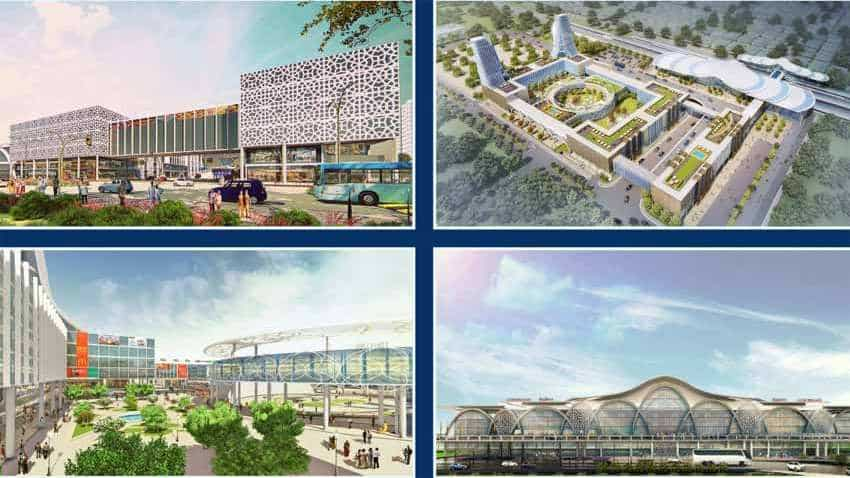Prime Minister Narendra Modi will virtually inaugurate 103 redeveloped railway stations across 86 districts in 18 states and Union Territories on Thursday, under the Amrit Bharat Station Scheme. The initiative aims to further modernise the Indian Railways by transforming more than 1,300 stations nationwide into state-of-the-art transport hubs, featuring upgraded passenger amenities and designs inspired by local architecture.
The 103 stations being inaugurated have been redeveloped at a cost of approximately ₹1,100 crore. These include a mix of major and minor stations spread across Andhra Pradesh, Assam, Bihar, Chhattisgarh, Gujarat, Haryana, Himachal Pradesh, Jharkhand, Karnataka, Kerala, Madhya Pradesh, Maharashtra, Puducherry, Rajasthan, Tamil Nadu, Telangana, Uttar Pradesh, and West Bengal.
On the same day, the Prime Minister will visit Rajasthan’s Bikaner, where he is scheduled to lay the foundation stone for development projects worth over ₹26,000 crore. His visit will begin with prayers at the Karni Mata Temple in Deshnoke, followed by a tour of the newly redeveloped Deshnoke railway station — one of the 103 stations inaugurated under the scheme. He will also flag off the Bikaner–Mumbai Express train. Rajasthan Chief Minister Bhajan Lal Sharma will accompany him during the visit.
Under the Amrit Bharat Station Scheme, railway stations across India are being upgraded to provide better facilities, improved accessibility for persons with disabilities, and architectural designs that reflect the cultural heritage of each region. For instance, the Deshnoke station has been redesigned to include temple-style arches and decorative pillars, showcasing the traditional architectural identity of the region.
The Prime Minister will also lay the foundation stone for the 58-km Churu–Sadulpur railway line and dedicate several electrification projects to the nation. These include the Suratgarh–Phalodi (336 km), Phulera–Degana (109 km), Udaipur–Himmatnagar (210 km), Phalodi–Jaisalmer (157 km), and Samdari–Barmer (129 km) railway sections, further contributing to Indian Railways’ goal of 100 per cent electrification.
In addition to rail infrastructure, Modi’s visit will also focus on strengthening road connectivity. He will launch projects that include three vehicular underpasses on National Highway-58 in Pushkar, the widening of NH-11 and NH-70, and dedicate seven major highway projects worth ₹4,850 crore. These road projects aim to boost both civilian mobility and military logistics in the region.
The visit will also underline India’s push towards clean energy. The Prime Minister will lay the foundation stone for multiple solar power projects, including a 300 MW ground-mounted project by NEEPCO in Bikaner and a 100 MW project by SJVN in Nawa. Solar power initiatives will also be launched in Didwana and Kuchaman. In support of grid connectivity, transmission systems under Powergrid’s Sirohi and Mewar divisions will be unveiled.
Three key power infrastructure projects will also be inaugurated: the Power Grid Neemuch Transmission System, a power evacuation project in Bikaner, and the capacity expansion of the Fatehgarh-II Power Station. Among other renewable energy initiatives, the 500 MW Kalasar and 300 MW Shimbhu Ka Bhurj solar plants — both using indigenous solar PV modules — are expected to play a pivotal role in the country’s clean energy mission under the “Make in India” programme.
To improve healthcare infrastructure in Rajasthan, the Prime Minister will inaugurate four new nursing colleges located in Rajsamand, Pratapgarh, Bhilwara, and Dholpur. These institutions are aimed at strengthening the healthcare workforce and expanding access to quality medical education.
In the road sector, the Prime Minister will launch the upgradation and maintenance of 12 state highways spanning 757 km, under the Rajasthan State Highway Development Programme, with an investment of ₹3,240 crore. Major routes include Mangaliyawas–Padukalan, Beawar–Tehla–Alniyawas, and Dantiwada–Pipar–Merta City. Plans are also in place for the future development of another 900 km of roadways, including the Gotan–Sathin Highway, to better connect industrial and border regions.
Additionally, two 132 kV electrical substations — one in Rajpura (Bikaner) and the other in Sarda (Udaipur) — will be inaugurated to improve power distribution and ensure reliable energy supply across Rajasthan.
(IANS)














